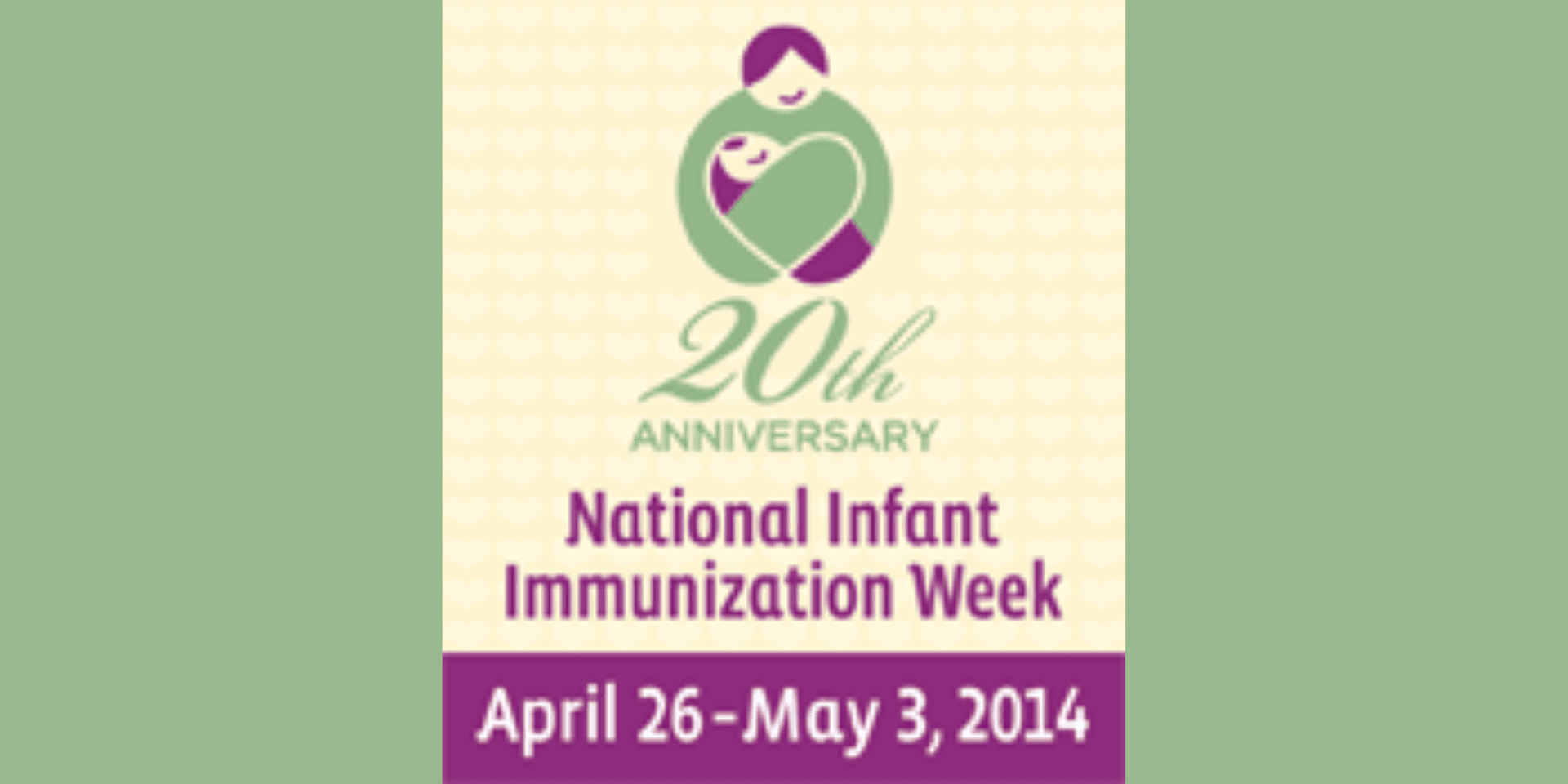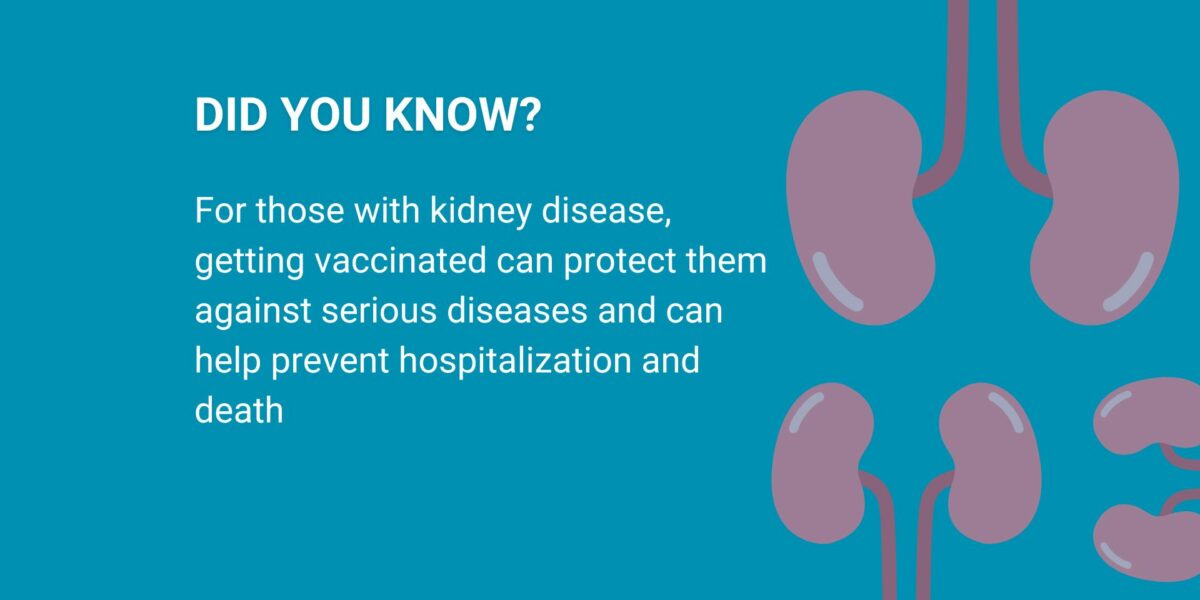
The Centers for Disease Control and Prevention (CDC) has designated April 26-May 3, 2014 as National Infant Immunization Week (NIIW), an annual observance highlighting the importance of protecting infants from vaccine-preventable diseases and celebrating the achievements of immunization programs and their partners in promoting healthy communities. Celebrating its 20th anniversary, NIIW has served as a call to action for parents, caregivers, and healthcare providers to ensure that infants are fully immunized against 14 vaccine-preventable diseases.
You want to do what is best for your children. You know the importance of car seats, baby gates, and other ways to keep them safe. But, did you know that one of the best ways to protect your children is to make sure they have all of their vaccinations?
Vaccines can save your child’s life. Some diseases that once injured or killed thousands of children, have been eliminated completely and others are close to extinction– primarily due to safe and effective vaccines. One example of the great impact that vaccines can have is the elimination of polio in the US. Polio was once a most-feared disease, causing death and paralysis across the country, but today, thanks to vaccination, there are no reports of polio in the US.
Vaccination is very safe and effective. Vaccines are only recommended after careful review by scientists, doctors, and other healthcare professionals. Vaccines may involve some discomfort and may cause pain, redness, or tenderness at the site of injection but this is minimal compared to the pain, discomfort, and trauma of the diseases they prevent. Serious side effects following vaccination, such as severe allergic reaction, are very rare. The disease-prevention benefits of getting vaccines are much greater than the possible side effects for almost all children.
Immunization protects others you care about. Children in the US still get vaccine-preventable diseases. In fact, there has been a resurgence of measles and whooping cough (pertussis) over the past few years. Last year was a record year for whooping cough, with over 41,000 cases reported, the most since 1955. There were also 18 deaths reported in 2012, most of which were among babies younger than 3 months old. Unfortunately, some babies are too young to be completely vaccinated and some people may not be able to receive certain vaccinations due to severe allergies, weakened immune systems from conditions like leukemia, or other reasons. To help keep them safe, it is important that you and your children who are able to get vaccinated are fully immunized. This not only protects your family, but also helps prevent the spread of these diseases to your friends and loved ones.
Immunizations can save your family time and money. A child with a vaccine-preventable disease can be denied attendance at school or daycare facilities. Some vaccine-preventable diseases can result in prolonged disabilities and can take a financial toll because of lost time at work, medical bills, or long-term disability care. In contrast, getting vaccinated against these diseases is a good investment that is usually covered by insurance. The Vaccines for Children (VFC) program is a federally funded program that provides vaccines at no cost to children from low-income families. To learn more about the VFC program, visit www.cdc.gov/vaccines/programs/vfc/.
Immunization protects future generations. Vaccines have reduced and, in some cases, eliminated many diseases that killed or severely disabled people just a few generations ago. For example, smallpox vaccination eradicated that disease worldwide. In the US, children don’t have to get the smallpox vaccine any more because the disease no longer exists. By vaccinating children against rubella (German measles), the risk that pregnant women will pass the virus on to their newborn has been dramatically decreased, and birth defects associated with that virus no longer are seen in the US. If we continue vaccinating now, and vaccinating completely, some diseases of today will no longer be around to harm children in the future.
For more information about the importance of infant immunization, visit www.nfid.org or www.cdc.gov/vaccines.
To join the conversation, follow us on Twitter (@nfidvaccines) and use the hashtag #NIIW, like us on Facebook, and join the NFID Linkedin Group.
Related Posts

3 Things You Need to Know about Kidney Disease and Vaccines
It is important for people with kidney disease to understand how critical vaccination can be for their health and well-being

The Times They Are A-Changin’
Special thanks to ACOG Fellow Tamika C. Auguste, MD, chair of Women’s and Infants’ Services at MedStar Washington Hospital Center, for sharing her reflections on the evolution of vaccines recommended during pregnancy …

Protecting Your Children’s Health Through the Holidays
With winter known as the season for colds and flu, and also whooping cough, it’s important as a mom of four to put my cape on and hone in on protecting my little beings. Like many children, my kids get vaccinated for various illnesses, but did you know that adults should get their Tdap booster vaccine too in order to prevent whooping cough?
